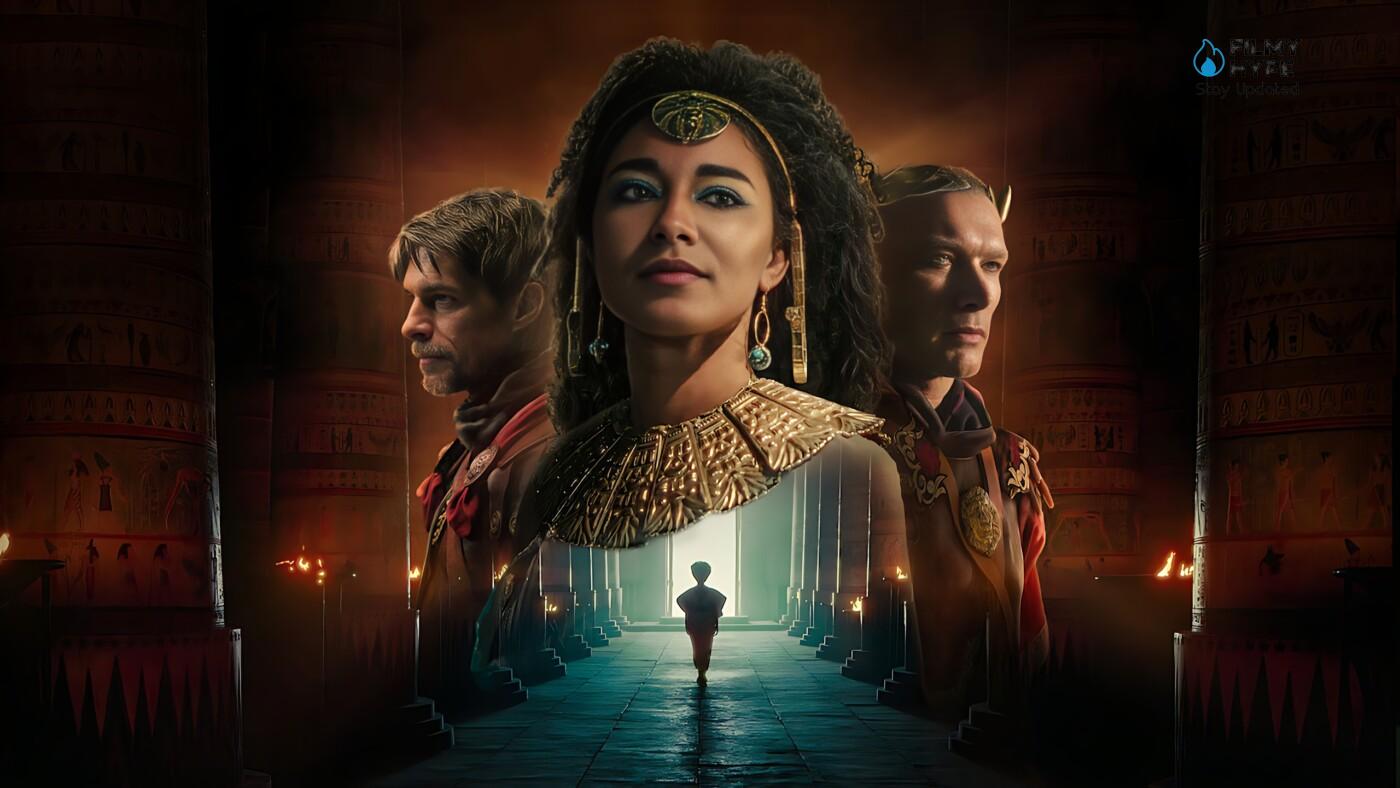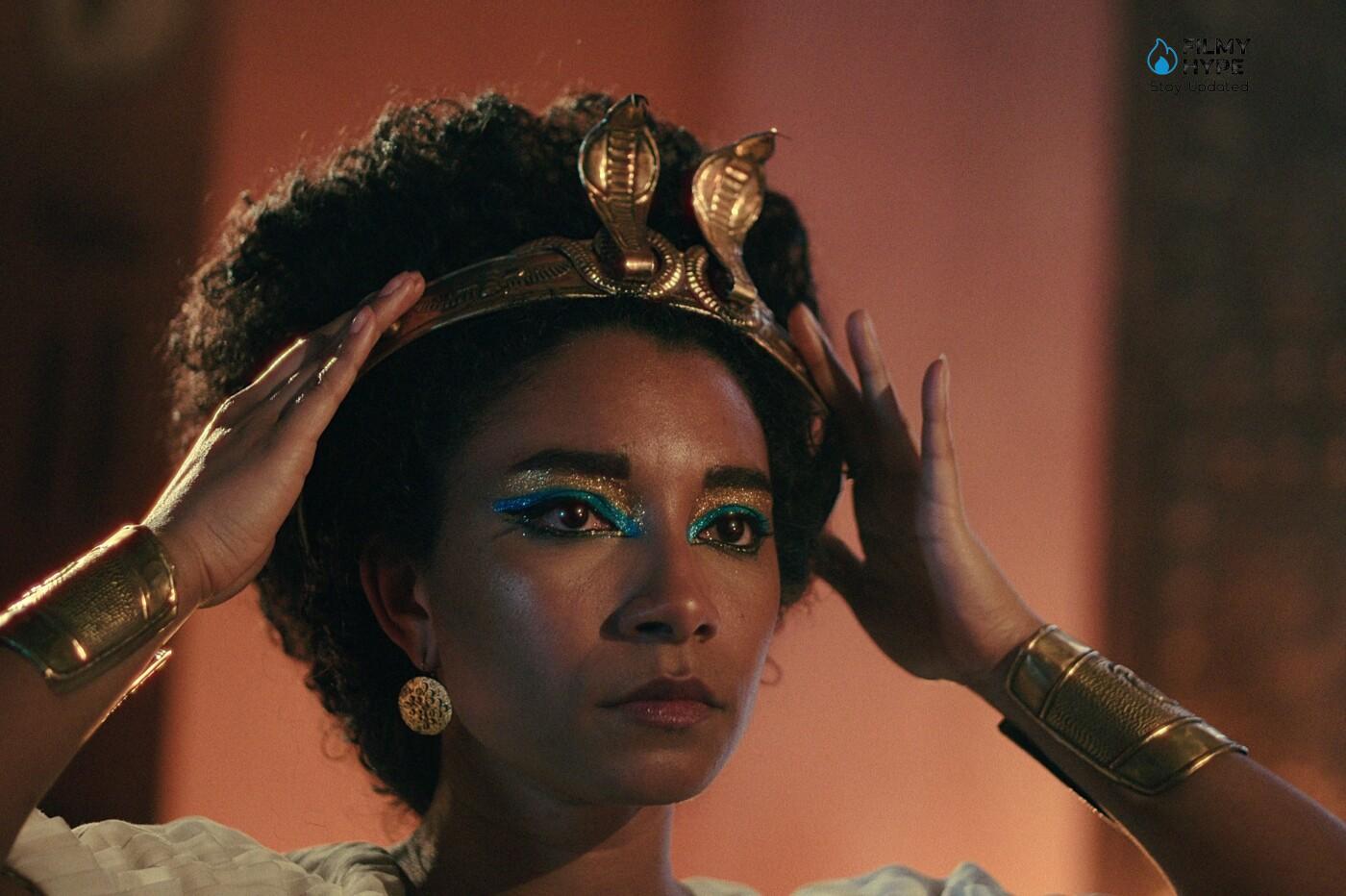Cleopatra Netflix: Big! Controversy for Casting Black Cleopatra! There Was a Whole Dynasty of Black Pharaohs and Queens!
The announcement that, in a new Netflix docuseries, Queen Cleopatra will have the features of a black actress, Adele James, has aroused a flurry of controversy. Cleopatra VII, the last queen of Egypt, did not have black skin, and she was not even Egyptian: for almost three centuries, since the victorious military campaign of Alexander the Great, late antique Egypt had been governed by the Ptolemies, a line of sovereigns Greco-Macedonians who descended from the general Ptolemy Lagide. Paradoxically, the dynasty did everything to keep its ethnic identity intact, of which it was particularly proud, and also resorted to marriages between blood relatives on several occasions so as not to mix with its Egyptian subjects (who, incidentally, did not even have a black complexion They!). Cleopatra herself married her brother Ptolemy…

As expected, many protested, fueling what rapidly took on the features of an authentic international controversy. In recent days, Egyptian lawyer Mahmoud al-Semary sued Netflix, asking local authorities to ban the broadcast of the documentary, because it would promote the cultural appropriation of the age of the pharaohs by the Afro-centrist movement. Zahi Hawass, an archaeologist and former culture minister, also accused Netflix of falsifying the story. Let’s take a step back, however: the docuseries is called African Queens, and its goal is to tell the biographies of some sovereigns of the black continent forgotten by history. The one dedicated to Cleopatra is the second season, after a first cycle of episodes on Queen Njinga. With this move, therefore, the Netflix series in our opinion not only betrays historical verisimilitude but also and above all its own cause: instead of giving voice to forgotten black queens, it chooses to focus on the popularity of a white monarch and appropriate her, even having at their disposal an entire dynasty of black-skinned pharaohs and queens. What a fool!
Cleopatra Netflix: The Age of the Black Pharaohs
When we think of ancient Egypt, we think of the great rulers of the remote age of the pyramids, such as Zoser, Cheops, Chefren, and Mycerinus, but also the pharaohs of the so-called New Kingdom, such as the leader Tutmosis III, the monotheist Akhenaten, the young and unfortunate Tutankhamun, and above all the great Ramses II, who appeared several times in the cinema as an antagonist of Moses (The Ten Commandments, Moses, The Prince of Egypt, Exodus: Gods and Kings). At the end of this golden age, however, the Nile Valley went through a period of severe crisis, which coincided with the rise of the independent kingdom of Kush, in present-day Sudan. The Nubian kings of Kush – characterized by a marked black complexion – acquired enormous economic prestige, finding themselves acting as a link between Egypt and Ethiopia (Punt) from which the most precious raw materials came.
During a period of military anarchy in the Nile Valley, Kashta, king of Kush and son of a high priest of Luxor, marched into Egypt and managed to have himself crowned pharaoh. Thus began the XXV dynasty, called the “dynasty of the black pharaohs”, which was the protagonist of intrigues worthy of Game of Thrones! Pianki, son of Kashta, had to fight against various other pretenders to ascend the throne, and both he and his successors were forced to turn their gaze to the east to defend themselves against the threat of a formidable foreign empire: that of the Assyrians. Threatened by the ruler of the then-known universe, Ashurbanipal, the “black pharaohs” forged an unlikely alliance with the kingdom of Israel, scored several victories, and then, inexorably, came off the worst. The last pharaoh of the dynasty, Tenutamon, had to cede Egypt to the Assyrians after the destruction of Thebes, but still managed to courageously defend the Sudanese kingdom of Kush, which continued to remain independent for centuries. A story that deserved a documentary, much more than the usual Cleopatra…
The Divine Brides of Amun: Three Colored Sovereigns in Egypt
And the queens? As is quite evident, the Netflix documentary was not born only to tell the story of ancient African monarchs, but also and above all to tell the story of women who managed to establish themselves as sovereigns. Technically speaking, the “dynasty of black pharaohs” always saw a male ruler on the throne, but we can legitimately speak in all respects of a parallel lineage of three sovereigns: the first was Amenardis, daughter of Kashta and sister of Piye, who was succeeded first by his granddaughter Shapenewpet, and then by his great-granddaughter Amenardis II. Since the “black pharaohs” were forced to keep their eyes fixed on the Assyrian threat arriving from the east and wanted to avoid an independence revolt by the Egyptians at all costs, they were forced to grant considerable autonomy to the region of Thebes, which it represented the beating heart of the economy and religion of the Nile valley.
The area was then governed independently by the Divine Brides of Amon, priestesses belonging to the XXV dynasty who transformed their religious role into an authentic monarchy. Thus, a real dynasty was born, which for a century governed the region of Thebes while the war against the Assyrians raged on the northeastern border. Their stories, however, are known only to insiders: African Queens, Netflix, and the producer Jada Pinkett had the opportunity to make them known to the general public, but they preferred to focus once again on Cleopatra, limiting themselves to changing the color of the skin. An implicitly racist operation, oriented only to market needs: the first season of African Queens – of good quality – was not very successful, and to avoid cancellation it was preferred to focus on a white name well known by all and arouse a fuss.
The Blackwashing Shortcut
It is useless to dwell on the reasons for this choice: as is known, American culture is going through a season of profound change, which has placed the theme of “representation” at the center. From the outset, Western cinema has been a stubbornly white and male-dominated cinema: think, merely by way of example, of 007: License to Kill, in which the African-American population of Cuba is reduced to the rank of mere caricatures, brainless pawns in hands of the villain, the diabolical Mr. No. A Chinese antagonist, moreover, played on the screen by the Canadian Joseph Wiseman, is made up of oriental features. There is no doubt that things must change. That we must give back to the non-Caucasian ethnic groups an identity that has been stolen for too long, too.

What causes perplexity is, if anything, the adoption of a highly questionable shortcut: “blackwashing”, i.e., the use of black actors to give life to typically white historical, literary or comic characters, rather than turning the spotlight on the key faces of culture African American. We limit ourselves to focusing attention on a particularly sensational example, but the discussion could expand ad infinitum: in the last two years, Warner Bros has planned a series on HBO Max dedicated to the famous occult detective John Constantine and thought of reinventing him as an African American actor, even though in Alan Moore’s comics, the character has a white complexion and blond hair. In the meantime, also due to the controversies related to the 2017 film Justice League, an African American superhero like Victor Stone, aka Cyborg, has been banned from any future film in the saga, without even evaluating the recast of the character. DC had Black Lightning, Static Shock, John Stewart, and many other black superheroes at its disposal but preferred to focus on the “restyling” of a better-known white character. If this is “representation” …
But Does “African” Necessarily Mean “Black”?
We conclude with a reflection starting from the title of the series, namely African Queens: what would have been the problem in dedicating the second season, if not to Cleopatra – who was not even African – at least to a great and charismatic Egyptian queen like Hatshepsut, who brought many decades of prosperity in the Nile Valley? Apparently, in the imagination of Jada Pinkett and the other producers of the series, “African” is synonymous with “black”, and the Egyptians of yesterday and today, as well as the Libyans, Tunisians, and North Africans, do not fully title in this category because they do not adequately represent the cultural dynamic currently taking place in American culture. It was above all this nuance that aroused the ire of the lawyer Mahmoud al-Semary and the former minister Zahi Hawass, who threw themselves into the fray of controversy even though Cleopatra was by no means an Egyptian queen.
According to the lawyer, a political and cultural process of Afro-centrism is underway aimed at increasingly affirming, in cinema and on TV, the ethnic standard of the populations of Central Africa as a model of representation of the entire continent. Think of the choice to give Pietro a black complexion in Mary Magdalene (2018), or the presence of a black jarl in the first season of Vikings: Valhalla (jark Haakon), since she comes from the southern coasts of the Mediterranean: somatic features evidently place, and completely foreign to the populations of those lands. At the top of Hollywood, it seems, efforts are being made to bring the African-American population and its cultural identity into the spotlight, but the phenomenon risks leading to a simple replacement of one privileged elite with another within the global film industry. At least when documentaries are made that aim to offer educational and informative content, it would be desirable to leave this type of dynamics aside…






